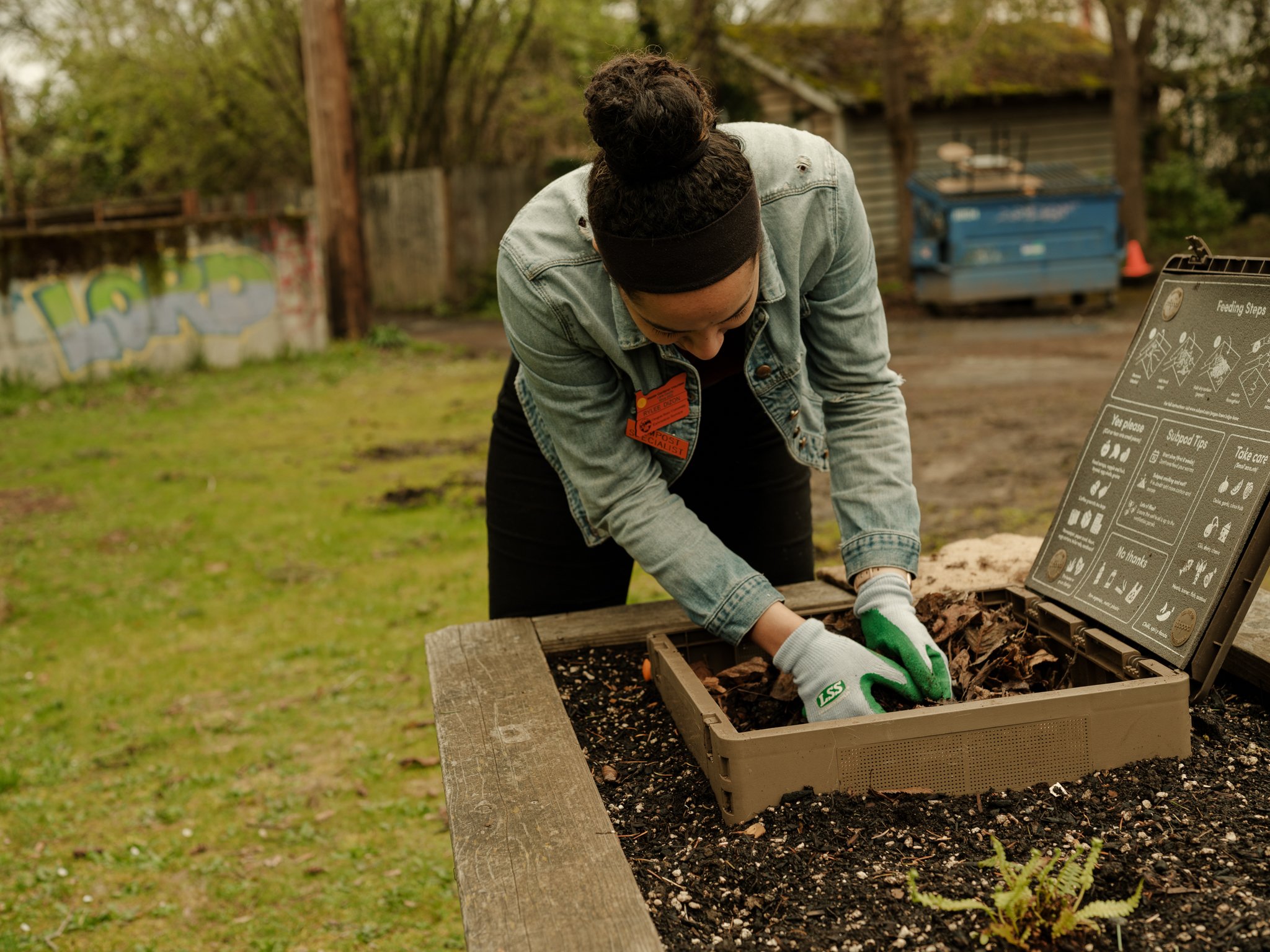Rylee Dizon - Seed to Supper
Becoming Self-sustainable
I was fortunate to have the opportunity to photograph this local compost specialist currently studying at OSU as a graduate student. She and Amy (from our own Knowing Oregon team!) teach locals how to grow plants from seed in our own gardens. They are both extremely educated in this field, yet they decided to take no profit and educate the community for free. We currently need to increase our food production level every year to sustain our current consumption level. This level of production cannot be continued at some point, especially if we care about nutrition value of food. I am grateful that people like Rylee and Amy are trying to make a difference in the community by helping people understand how we can make difference. I love knowing exactly where the food my family is eating comes from, that it’s nutritious, and that it is going to taste amazing. Below is a message from Rylee. Enjoy!
Rylee Dizon
I was born and raised in Eugene, Oregon and have spent the majority of my life in the beautiful Willamette Valley. Upon completing my dual undergraduate degrees in Sociology and International Studies I departed for the Peace Corps where I served for 27 months as an education volunteer and then chose to extend my service further, transitioning to work in the environment sector as an Environmental Program Officer. I occupied this role for 5 months until the COVID-19 pandemic began and escalated to the point where all Peace Corps Volunteers were evacuated from their countries and returned to America. Since my return, my work has revolved around food access, food security, and nutrition.
Beyond my professional work, an important part of my personal life has always been service, which I’m fortunate to be able to undertake in many diverse capacities including as a Master Gardener and Compost Specialist. What I value most about these particular roles are the abundance of meaningful and impactful opportunities to recognize, connect, and contribute to our broader community through casual conversation, structured educational instruction, provision of scientific guidance, among other means. I have been gardening my entire life and my experience with and love for gardening is something I’m avidly keen about sharing with others, whether someone wants to know how they can repurpose the food scraps they create or discuss how they can grow their own fruits and vegetables to better supplement the diets of themselves and their families. Gardening is empowering and gardening is for everyone, and I aspire to introduce and instill these convictions in all communities with whom I interact.
Tell us about your passion
I have many passions in life and the majority revolve around our environment and our food systems. Local and regional food systems, food access and security, composting and sustainable waste practices, agroecology, food loss and wasted food reduction, these are several of the concepts I am most focused on in my life. I want to explore how we can build and cultivate equitable and sustainable food systems in our communities. How can wasted food be used to address the issues of food security? To what extent can agroecology be successfully integrated into our agricultural systems? These passions and questions are why my desire to keep learning and expanding my knowledge hasn’t ceased and why I am actively working towards completing a Master’s degree in Environmental Sciences at Oregon State University.
How can we be more sustainable?
Sustainability is a complex and broad term and it’s important that we bear in mind there is no one size fits all definition, its definition should be adapted to local contexts. That said, most definitions of sustainability involve something along the lines of…creating and maintaining an environment where humans and nature can coexist, balancing both entities' needs in efforts to support present and future generations. When it comes to living a more sustainable lifestyle, I say, don’t dismiss the significance of starting small. Think about what practices you can implement that are feasible for you in your current stage in life and consider what steps you need to take to get there. Change is hard, to put it simply, and fundamentally changing the way we live our lives can be both uncomfortable and challenging at times, so recognize and celebrate what practice(s), big or small, you introduce or modify in your life that support a more resilient and vibrant environment. It’s up to us to hold ourselves accountable, so it starts with acknowledgement and should be followed by action.








